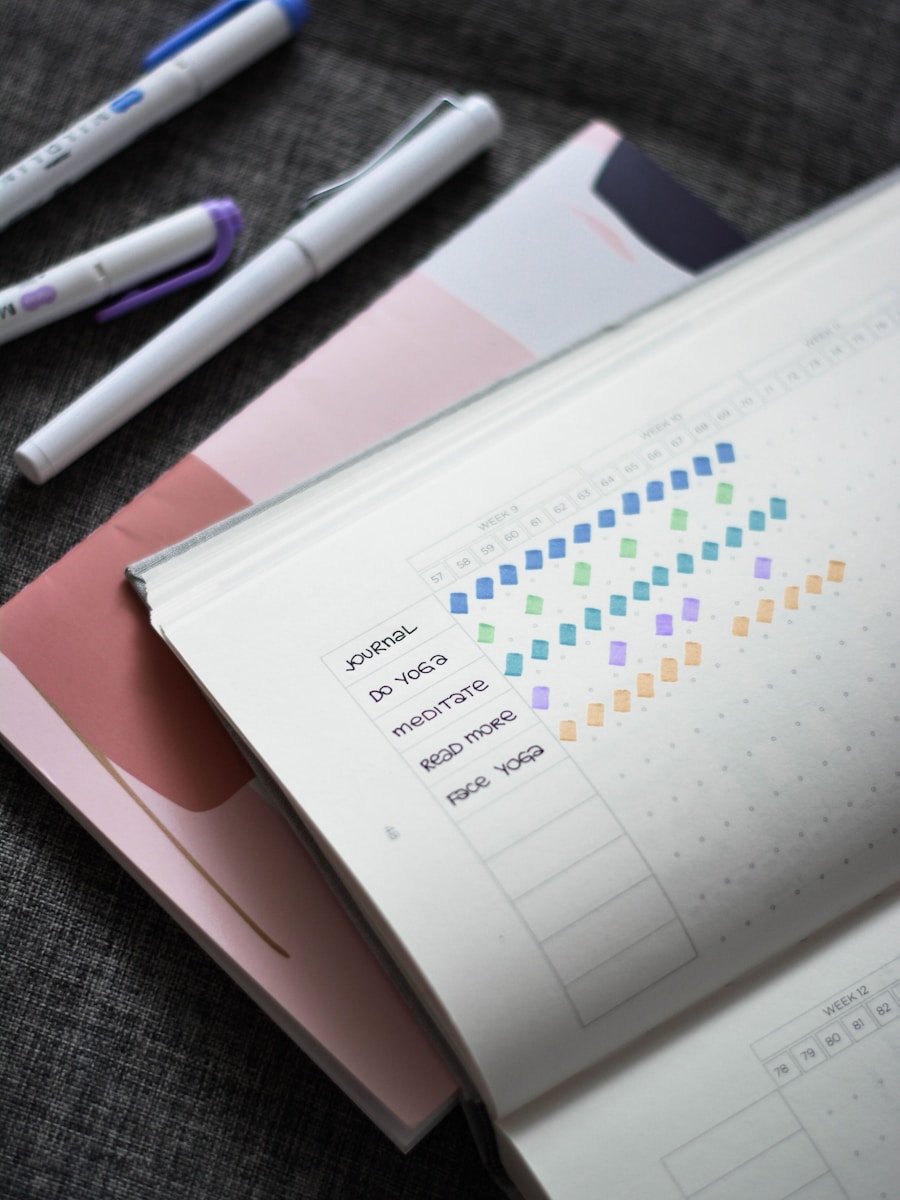1. How can I improve communication in my relationship?
Improving communication in a relationship is essential for fostering a healthy and strong connection with your partner. Here are ten effective tips to enhance communication:
- Express Yourself Clearly: Be open and honest about your thoughts, feelings, and needs. Use “I” statements to express yourself without blaming or criticizing your partner.
- Non-Verbal Communication: Remember that communication is not just about words. Pay attention to your body language, facial expressions, and tone of voice to ensure your non-verbal cues align with your message.
- Empathy and Understanding: Try to see things from your partner’s perspective and validate their emotions. Show empathy by acknowledging their feelings and demonstrating that you understand their point of view.
- Avoid Assumptions: Don’t assume you know what your partner is thinking or feeling. Instead, ask open-ended questions and encourage them to share their thoughts and emotions.
- Be Mindful of Timing: Choose the right time and place to have important conversations. Avoid discussing sensitive topics when one or both of you are tired, stressed, or distracted.
- Practice Patience: Give your partner time to express themselves fully without interrupting or rushing them. Be patient and allow for pauses and silence during conversations.
- Use Positive Language: Focus on using positive and constructive language when discussing issues or conflicts. Avoid using negative or accusatory words that can escalate tensions.
- Validate and Appreciate: Show appreciation for your partner’s efforts and validate their feelings. Let them know that their thoughts and emotions are valued and respected.
- Seek Professional Help if Needed: If communication issues persist or become overwhelming, consider seeking the assistance of a couples therapist or relationship counselor. They can provide guidance and tools to improve communication skills.
By implementing these communication tips, you can create a stronger bond with your partner and foster a healthier and more fulfilling relationship.
2. How can I resolve conflicts effectively in my relationship?
Conflict is a natural part of any relationship, but how you handle it can make a significant difference in the health and longevity of your partnership. Here are ten strategies for resolving conflicts effectively:
- Stay Calm: It’s crucial to remain calm and composed during conflicts. Take deep breaths, count to ten, or take a short break if needed to prevent escalating tensions.
- Use “I” Statements: Express your feelings and concerns using “I” statements to avoid sounding accusatory or confrontational. For example, say, “I feel hurt when…” instead of “You always…”
- Find Common Ground: Look for areas of agreement or shared goals to build upon. Focus on finding solutions that benefit both parties rather than trying to “win” the argument.
- Take Responsibility: Acknowledge your role in the conflict and take responsibility for your actions or words that may have contributed to the issue. Apologize if necessary.
- Compromise: Be willing to meet halfway and find a middle ground that satisfies both you and your partner. Avoid being rigid or stubborn in your stance.
- Use Humor: Injecting humor into tense situations can help diffuse tension and create a more relaxed atmosphere. However, be mindful of using humor in a respectful and non-offensive way.
- Take Breaks: If the conflict becomes overwhelming, take a short break to cool down and collect your thoughts. Agree on a specific time to reconvene and continue the discussion.
- Seek Mediation: If you find it challenging to resolve conflicts on your own, consider seeking the help of a neutral third party, such as a couples therapist or mediator, to facilitate productive discussions.
- Learn from the Conflict: Use conflicts as opportunities for growth and learning. Reflect on the underlying issues and patterns that contribute to conflicts and work together to find long-term solutions.
Remember, resolving conflicts requires patience, understanding, and a willingness to compromise. By implementing these strategies, you can navigate conflicts more effectively and strengthen your relationship.
3. How can I improve emotional intimacy in my relationship?
Emotional intimacy is a vital aspect of a healthy and fulfilling relationship. It involves deepening the emotional connection and fostering a sense of trust and vulnerability with your partner. Here are ten ways to improve emotional intimacy:
- Open and Honest Communication: Share your thoughts, feelings, and desires openly with your partner. Create a safe space where both of you can express yourselves without judgment or criticism.
- Active Listening: Practice active listening by giving your partner your full attention and showing genuine interest in their words and emotions. Avoid distractions and be fully present in the moment.
- Express Appreciation: Regularly express gratitude and appreciation for your partner. Acknowledge their efforts, strengths, and qualities that you admire. Small gestures of appreciation can go a long way in building emotional intimacy.
- Share Your Dreams and Goals: Discuss your dreams, aspirations, and goals with your partner. Share your vision for the future and encourage them to do the same. This helps create a sense of shared purpose and strengthens emotional bonds.
- Show Empathy and Understanding: Make an effort to understand your partner’s perspective and validate their emotions. Show empathy by acknowledging their feelings and demonstrating that you care and support them.
- Engage in Meaningful Conversations: Have deep and meaningful conversations with your partner. Discuss topics that go beyond daily routines and delve into your values, beliefs, and aspirations.
- Practice Physical Affection: Physical touch, such as hugging, holding hands, or cuddling, can foster emotional intimacy. Physical affection releases oxytocin, a hormone associated with bonding and trust.
- Create Rituals of Connection: Establish rituals or routines that allow you to connect on a regular basis. This could be a weekly date night, morning coffee together, or a daily check-in to share highlights and challenges.
- Be Vulnerable: Share your fears, insecurities, and vulnerabilities with your partner. Opening up emotionally creates a deeper level of trust and allows your partner to support you in times of need.
- Prioritize Quality Time: Make time for each other and prioritize quality time together. Disconnect from distractions, such as phones or work, and focus on nurturing your emotional connection.
Improving emotional intimacy takes time and effort, but the rewards are immeasurable. By implementing these strategies, you can create a deeper emotional bond with your partner and strengthen your relationship.

4. How can I build trust in my relationship?
Trust is the foundation of any healthy and successful relationship. Building trust requires consistent effort and commitment from both partners. Here are ten ways to build trust in your relationship:
- Be Reliable: Follow through on your commitments and promises. Show up for your partner and be someone they can depend on.
- Communicate Openly: Foster open and honest communication with your partner. Share your thoughts, feelings, and concerns without fear of judgment or criticism.
- Be Transparent: Be open about your actions, intentions, and decisions. Avoid keeping secrets or withholding important information from your partner.
- Keep Your Word: Honor your commitments and be true to your word. If you make a promise, follow through on it.
- Apologize and Forgive: When you make a mistake, take responsibility, apologize sincerely, and make amends. Similarly, be willing to forgive your partner and let go of past grievances.
- Respect Boundaries: Respect your partner’s boundaries and communicate your own. Establish clear boundaries and honor them.
- Be Consistent: Consistency is key in building trust. Be consistent in your words, actions, and behaviors.
- Avoid Deception: Honesty is crucial in building trust. Avoid lying, hiding information, or engaging in deceptive behaviors.
- Give Trust to Receive Trust: Trust is a two-way street. Be willing to trust your partner and give them the benefit of the doubt. Trust begets trust.
Building trust takes time and patience. It requires consistent effort and a commitment to open and honest communication. By implementing these strategies, you can strengthen the trust in your relationship and create a solid foundation for a lasting partnership.
5. How can I maintain a healthy work-life balance in my relationship?
Maintaining a healthy work-life balance is crucial for the well-being of both you and your relationship. Here are ten tips to help you achieve a healthy balance:
- Prioritize Quality Time: Make intentional efforts to spend quality time with your partner. Set aside dedicated time for activities, conversations, and shared experiences.
- Establish Boundaries: Set clear boundaries between work and personal life. Avoid bringing work-related stress or tasks into your personal time.
- Communicate Your Needs: Communicate your needs and expectations regarding work-life balance with your partner. Discuss how you can support each other in achieving a healthy balance.
- Schedule Regular Date Nights: Plan regular date nights to reconnect and have fun together. This dedicated time allows you to focus on your relationship and enjoy each other’s company.
- Delegate and Outsource: Delegate tasks and responsibilities at work and home when possible. Consider outsourcing certain tasks to free up time for yourself and your relationship.
- Practice Self-Care: Prioritize self-care activities that help you relax and recharge. This could include exercise, hobbies, meditation, or spending time with friends.
- Set Realistic Goals: Set realistic goals and expectations for both your work and personal life. Avoid over committing and spreading yourself too thin.
- Learn to Say No: It’s important to learn to say no to additional work or commitments that may interfere with your work-life balance. Prioritize your well-being and the health of your relationship.
- Create a Supportive Network: Surround yourself with a supportive network of friends, family, and colleagues who understand the importance of work-life balance. Lean on them for support and guidance when needed.
- Regularly Assess and Adjust: Regularly assess your work-life balance and make adjustments as needed. Be flexible and willing to adapt your schedule and priorities to maintain a healthy balance.
Remember, achieving a healthy work-life balance is an ongoing process that requires conscious effort and regular evaluation. By implementing these tips, you can create a harmonious balance between your work and personal life, leading to a happier and more fulfilling relationship.
6. How can I show appreciation to my partner?
Showing appreciation to your partner is essential for nurturing a healthy and loving relationship. Here are ten ways to express your gratitude and appreciation:
- Verbal Affirmations: Use words to express your appreciation. Tell your partner directly how much you value and appreciate them.
- Acts of Service: Show your appreciation by performing acts of service for your partner. This could be as simple as making them breakfast in bed or taking care of a chore they dislike.
- Thoughtful Gestures: Surprise your partner with small, thoughtful gestures that show you are thinking of them. It could be leaving a love note, buying their favorite treat, or planning a surprise date night.
- Quality Time: Spend quality time together, giving your partner your undivided attention. Engage in activities you both enjoy and create lasting memories.
- Physical Affection: Show your appreciation through physical touch. Hug, kiss, hold hands, and cuddle to express your love and affection.
- Celebrate Achievements: Acknowledge and celebrate your partner’s achievements, big or small. Show genuine excitement and pride in their accomplishments.
- Listen and Support: Be a supportive listener when your partner needs to vent or share their thoughts and feelings. Show empathy and offer your support without judgment.
- Remember Special Dates: Remember important dates, such as birthdays, anniversaries, and milestones. Plan surprises or thoughtful gifts to make these occasions memorable.
- Express Gratitude: Regularly express gratitude for the things your partner does for you and the relationship. Let them know that their efforts are noticed and appreciated.
- Be Present: Be fully present in your interactions with your partner. Put away distractions and give them your undivided attention. Show that you value their presence and time.
By consistently showing appreciation, you can strengthen the bond with your partner and create a positive and loving atmosphere in your relationship.
7. How can I handle disagreements in a respectful manner?
Disagreements are a natural part of any relationship, but it’s essential to handle them in a respectful and constructive manner. Here are ten tips for handling disagreements respectfully:
- Stay Calm: Keep your emotions in check and approach the disagreement with a calm and composed mindset. Take deep breaths and avoid reacting impulsively.
- Use “I” Statements: Express your thoughts and feelings using “I” statements to avoid sounding accusatory or confrontational. For example, say, “I feel…” instead of “You always…”
- Seek Understanding: Try to understand your partner’s point of view and the underlying reasons for their perspective. Ask open-ended questions to gain clarity and show genuine interest.
- Find Common Ground: Look for areas of agreement or shared goals to build upon. Focus on finding solutions that benefit both parties rather than trying to “win” the argument.
- Take Turns Speaking: Practice respectful communication by taking turns speaking and actively listening to each other. Avoid talking over one another or dominating the conversation.
- Avoid Personal Attacks: Refrain from personal attacks or insults during disagreements. Stick to discussing the issue at hand and avoid bringing up past grievances.
- Take Breaks if Needed: If the disagreement becomes heated or overwhelming, take a short break to cool down and collect your thoughts. Agree on a specific time to reconvene and continue the discussion.
- Use Humor to Diffuse Tension: Injecting humor into tense situations can help diffuse tension and create a more relaxed atmosphere. However, be mindful of using humor in a respectful and non-offensive way.
- Focus on Resolution: Keep the focus on finding a resolution rather than winning the argument. Look for compromises and solutions that satisfy both parties’ needs and concerns.
By handling disagreements respectfully, you can maintain a healthy and harmonious relationship. Remember, it’s not about avoiding disagreements but rather about navigating them in a way that strengthens your connection with your partner.
Conclusion
Nurturing healthy relationships requires effective communication, conflict resolution skills, emotional intimacy, trust-building, and maintaining a healthy work-life balance. By implementing the tips provided in this article, you can enhance your communication, resolve conflicts, deepen emotional intimacy, build trust, and create a harmonious balance between work and personal life. Remember, relationships require ongoing effort and commitment, but the rewards of a strong and fulfilling partnership are immeasurable.






